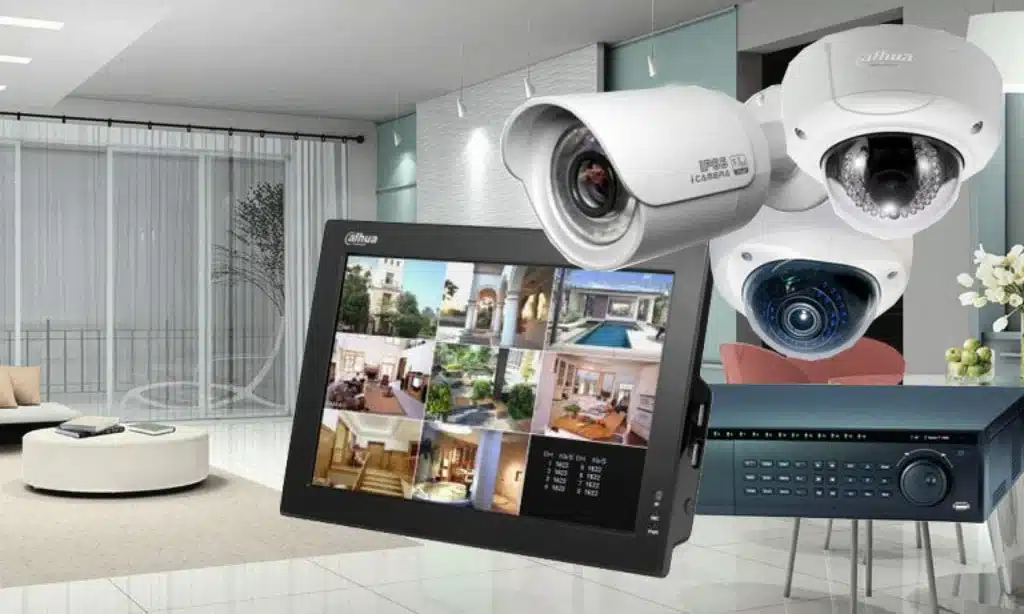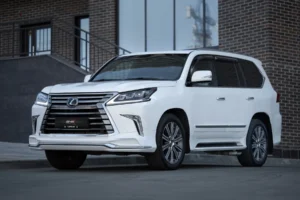Table of Contents
Have you ever been in a gathering with friends where the conversation shifted to security systems? As discussions unfolded about the latest technologies and the best ways to protect homes and businesses, one of them turned to you and asked, “How to choose a security system that truly fits your needs?” It’s a question that many find themselves pondering, especially with the overwhelming number of options available today.
Security systems for buildings are no longer a luxury but a necessity for residential, commercial, and industrial establishments. With rising threats such as theft, accidents, and even cyberattacks, it has become more important than ever to invest in a system that is both advanced and highly effective. After all, security isn’t just about protecting property, it’s about ensuring the safety of lives and safeguarding sensitive information.
In this article, we’ll explore building security systems comprehensively, highlighting the features and drawbacks of each system. We’ll guide you on how to choose a security system for your place to ensure comprehensive protection, leaving you confident that every corner of your home or workplace is safeguarded in the best possible way.
What Are Security Systems?
Security systems are a set of tools and technologies designed to protect a location or individuals from risks such as theft, accidents, or other threats. These systems include surveillance cameras, alarms, and access control systems, ensuring that you are secure and comfortable in your daily life, whether at home, at work, or in public spaces.

Types of Security Systems for Buildings
When it comes to how to choose a security system for your property, there are numerous options to consider. Here are the primary types that can help secure your facilities:
Theft Alarm Systems
These systems rely on sensors that detect motion or any abnormal intrusion in monitored areas. Once suspicious movement is detected, the system triggers an alarm or sends a notification to you or the monitoring center.
Video Surveillance Systems
If you’re looking for visual protection, video surveillance systems offer cameras that monitor every angle. You can watch live footage or store it for later review.
Access Control Systems
These systems allow you to determine who can access a building or specific areas inside it, utilizing technologies such as smart cards or fingerprints to identify people.
Fire Detection Systems
Fire detection systems are indispensable. They detect smoke or sudden temperature increases, helping minimize damage and evacuate the building quickly.
Audio Alarm Systems
These systems alert individuals in the building about potential dangers like fire or gas leaks. They often integrate with other systems like fire detection devices.
Integrated Security Systems
Integrated security systems combine video surveillance, theft alarms, and access control to offer you comprehensive protection. You can monitor everything remotely using mobile apps or electronic systems.
Benefits of Security Systems for Buildings and Facilities
Today, we cannot afford to be complacent when it comes to security. From protecting property to personal safety, security systems are now essential for every establishment. But the critical question is: how to choose a security system for you? Let’s discuss the benefits these systems provide and how they can improve your security and peace of mind.
- Security systems protect your property from theft, as cameras and alarms monitor your premises and detect any intrusion immediately.
- With motion detection devices, you can feel secure at any time, knowing your surroundings are being constantly monitored.
- You can monitor your home or workplace from anywhere via your mobile phone, allowing you to feel reassured when you’re not physically present.
- Security systems protect you from accidents such as fire or gas leaks, giving you time to take the right actions before any major issues arise.
- They help improve business operations by regulating access to sensitive areas and enhancing communication between employees.
- Over time, security systems help reduce significant losses from theft or accidents, making them a smart investment that saves you money.
Traditional Security Systems vs. Smart Security Systems
Choosing the right security system can be overwhelming, especially with two primary types to choose from: traditional systems and smart systems. Here, we’ll help you distinguish between the two and explain how to choose a security system that best suits you based on the benefits of each.
Traditional Security Systems
These systems include basic surveillance cameras and alarms that rely on manual and conventional setups.
Advantages:
- Simple and easy to install.
- Generally cheaper than smart systems.
- Provides immediate protection through alerts or recordings.
Disadvantages:
- Cannot be monitored remotely or controlled via phone.
- Cannot accurately detect suspicious activities.
- Expansion or adding more devices might be difficult.
Smart Security Systems
Smart systems use internet connectivity and technologies like AI to provide advanced security.
Advantages:
- Internet connectivity allows you to monitor your property from anywhere.
- Remote control via apps, helping you manage devices from a distance.
- Smart systems detect threats and send real-time notifications.
- Easily expandable by adding new devices.
Disadvantages:
- Smart systems tend to be more expensive than traditional systems.
- Some technical expertise may be needed for installation.
- May stop working if there is an internet outage.
How to choose a security system for Your Building?
By following a few simple steps, you can select the ideal security system that protects every corner of your space, whether it’s a home or office, and ensures optimal security.
Define Your Security Needs
Based on what you want to protect, decide whether you need a basic surveillance system or an integrated solution to protect both property and people.
For example, in smaller homes, a basic alarm system with affordable cameras might be enough, but for a commercial office, you might require a more advanced system with facial recognition cameras, such as the Google Nest Cam IQ.
Choose Between Smart or Traditional Systems
Smart systems like Ring Video Doorbell offer continuous monitoring via mobile, while traditional systems, like Arlo cameras, are more cost-effective but still effective.
Consider the Size of the Space
For smaller homes, basic surveillance cameras might suffice. For larger spaces, such as commercial offices or large establishments, you may need a more advanced system with smart cameras and integrated alarms.
For instance, large businesses like hotels or corporate buildings might need an integrated security solution that includes surveillance cameras, alarm systems, and motion detection devices like ADT Security.

Stay Within Your Budget
If you’re on a budget, you might opt for more affordable cameras like Xiaomi. However, if you have a larger budget, integrated systems like Vivint or ADT could be a better option.
Ensure Compatibility with Your Existing Smart Devices
Make sure the security system is compatible with your existing smart devices like Google Home or Amazon Alexa. For example, you can integrate Ring with Alexa to monitor your home with voice commands.
Opt for User Friendly Systems with Good Technical Support
Mobile apps like Vivint’s make it easy to manage security remotely. Choose systems that offer good customer support in case any issues arise.
In the end, how to choose a security system depends on understanding your specific needs and selecting a solution that best fits your space. It is essential to choose a system that is easy to use, provides effective protection, and aligns with your security requirements. Whether you’re looking for smart cameras, alarm systems, or a fully integrated security solution, the right choice will give you peace of mind and enhanced safety.
At Soum, we offer a variety of options, helping you find high-quality surveillance cameras and security systems at affordable prices to keep your home or business secure.
















